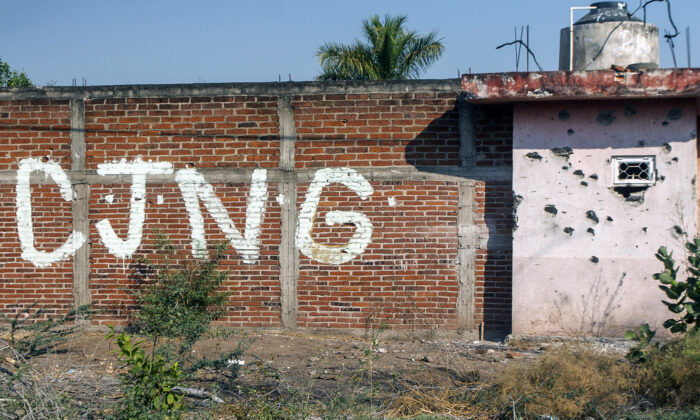The U.S. Treasury froze assets of a major Mexican cartel fuel-theft ring, sanctioning three brothers and two trucking firms tied to fentanyl trafficking.
The Treasury Department on May 1 announced U.S. sanctions on three Mexican nationals and two Mexico-based transport companies that investigators say allegedly fed Cartel Jalisco Nueva Generacion’s (CJNG’s) fentanyl pipeline and financed the cartel through large-scale fuel theft.
The Office of Foreign Assets Control blocked all U.S. property and interests tied to Cesar Morfin Morfin, known as “Primito,” his brothers Alvaro Noe Morfin Morfin and Remigio Morfin Morfin, along with trucking firms SLA Servicios Logisticos Ambientales S.A. de C.V. and Grupo Jala Logistica S.A. de C.V.
“Fuel theft and crude oil smuggling are cash cows for CJNG’s narco-terrorist enterprise, providing a lucrative revenue stream for the group and enabling it to wreak havoc in Mexico and the United States,” said Treasury Secretary Scott Bessent in a statement. “Treasury, as part of the Administration’s whole-of-government effort, will continue to use all available tools to relentlessly target drug cartels and foreign terrorist organizations to Make America Safe Again.”
At the same time, Treasury’s Financial Crimes Enforcement Network issued an alert to financial institutions outlining red flags that could signal crude-oil smuggling across the Southwest border.
Investigators allege that Primito controls CJNG operations in Tamaulipas, charges fees at border crossings he oversees, and falsifies customs paperwork to sneak stolen crude into Texas. Mexican authorities seized exotic animals and dozens of luxury vehicles from him last year. His network, which also traffics fentanyl, heroin, and methamphetamine, is believed to generate hundreds of millions of dollars annually.
Fuel theft, known in Mexico as huachicol, has become the most lucrative non-drug revenue source for multiple cartels, costing Petróleos Mexicanos billions of dollars in lost product, the Treasury said. Stolen crude is often mislabeled “waste oil” to skirt U.S. import rules before being resold at a discount, with profits routed back to criminal groups.
CJNG was labeled a Foreign Terrorist Organization and Specially Designated Global Terrorist by the State Department on Feb. 20, with the group already facing previous sanctions for drug trafficking.
Paul Anthony Perez, president of the National Border Patrol Council, said in a statement that blocking cartel finances “will have a devastating and crippling effect on their ability to operate in the United States” and will “disrupt their daily activities” in both Mexico and the United States.
“When President Trump took the oath of office, the criminal cartels were put on notice that their days were numbered,” Perez said. “These actions today will ensure that the cartels no longer have the ability to provide unlimited funds to further their criminal enterprises and, at the same time, it will allow the United States Government to disrupt their daily activities on both sides of the border. Their reign of terror will come to an end because of the strength and power that President Trump has brought back to the Oval Office.”
Under Thursday’s order, Americans are barred from transacting with the listed individuals or companies, and any foreign bank that knowingly processes significant deals for them could face secondary sanctions. Violations can lead to civil or criminal penalties, the Treasury said.
The action follows a series of recent sanctions by the Trump administration aimed at CJNG cells and other criminal groups tied to fentanyl trafficking, human smuggling, and money laundering. The Biden administration also sanctioned the gang for fentanyl trafficking last year.

